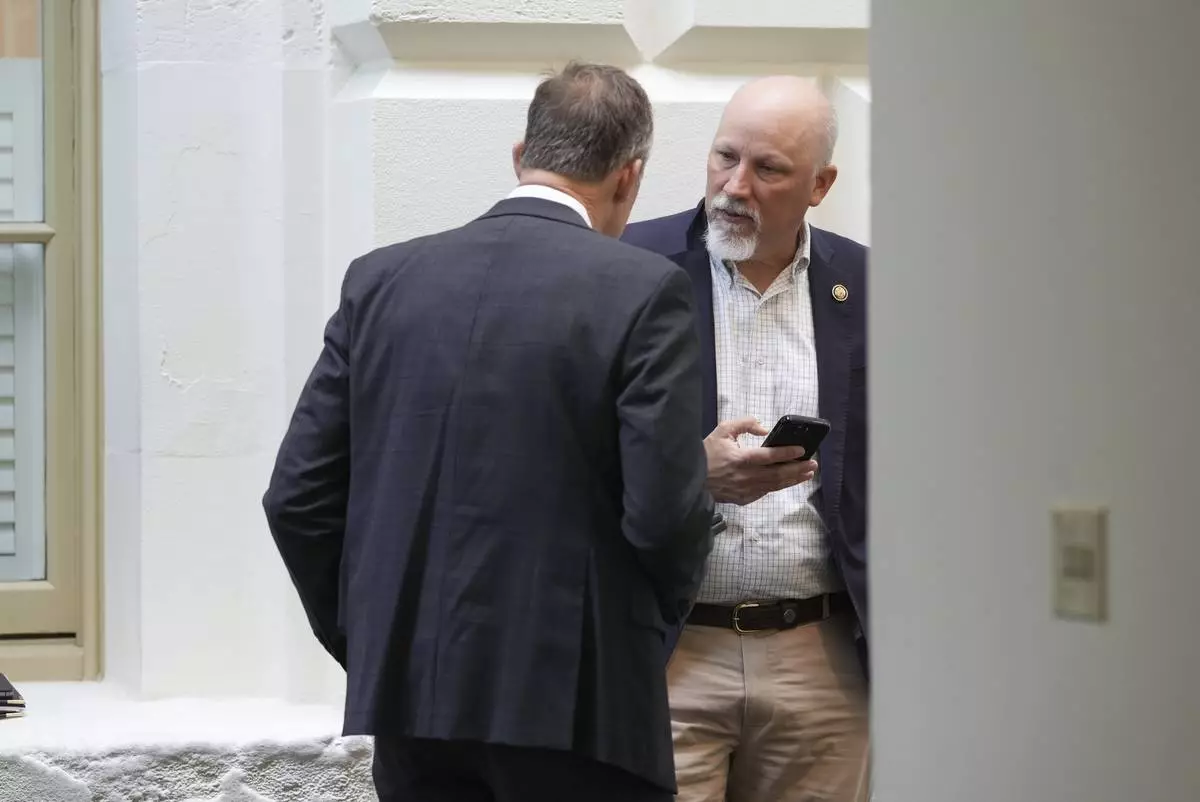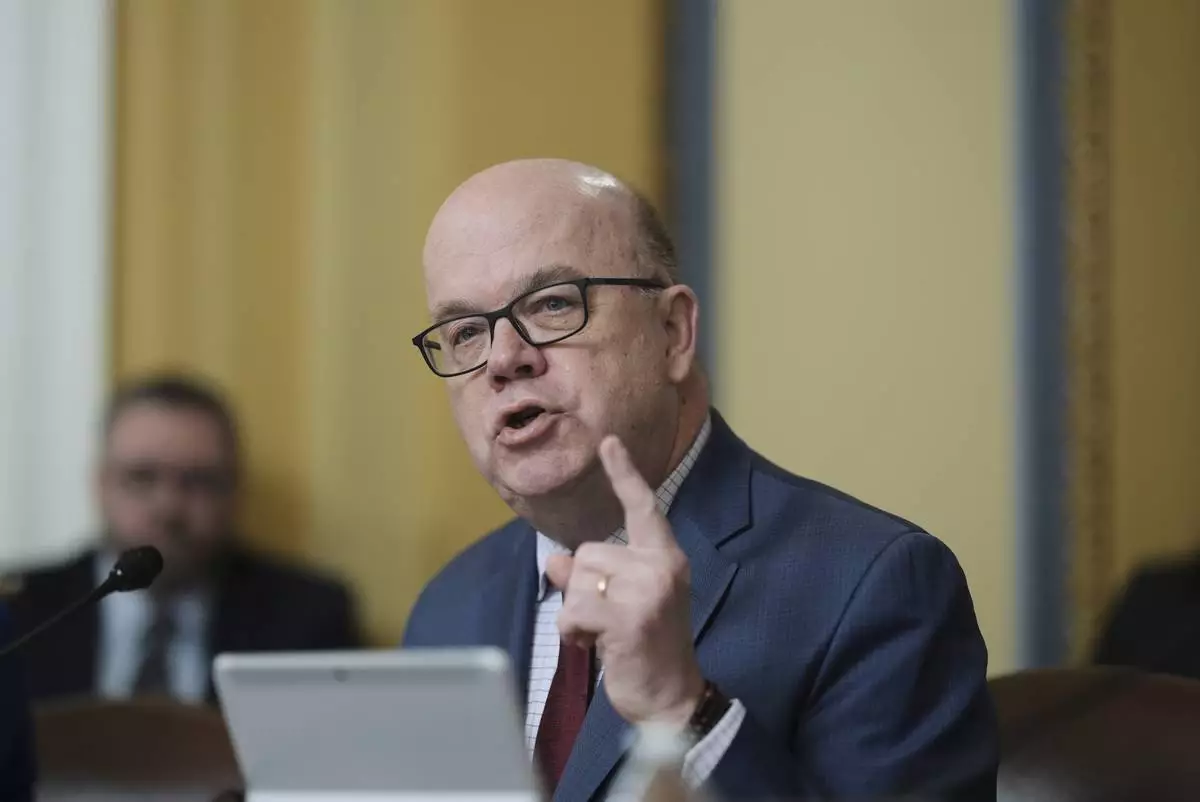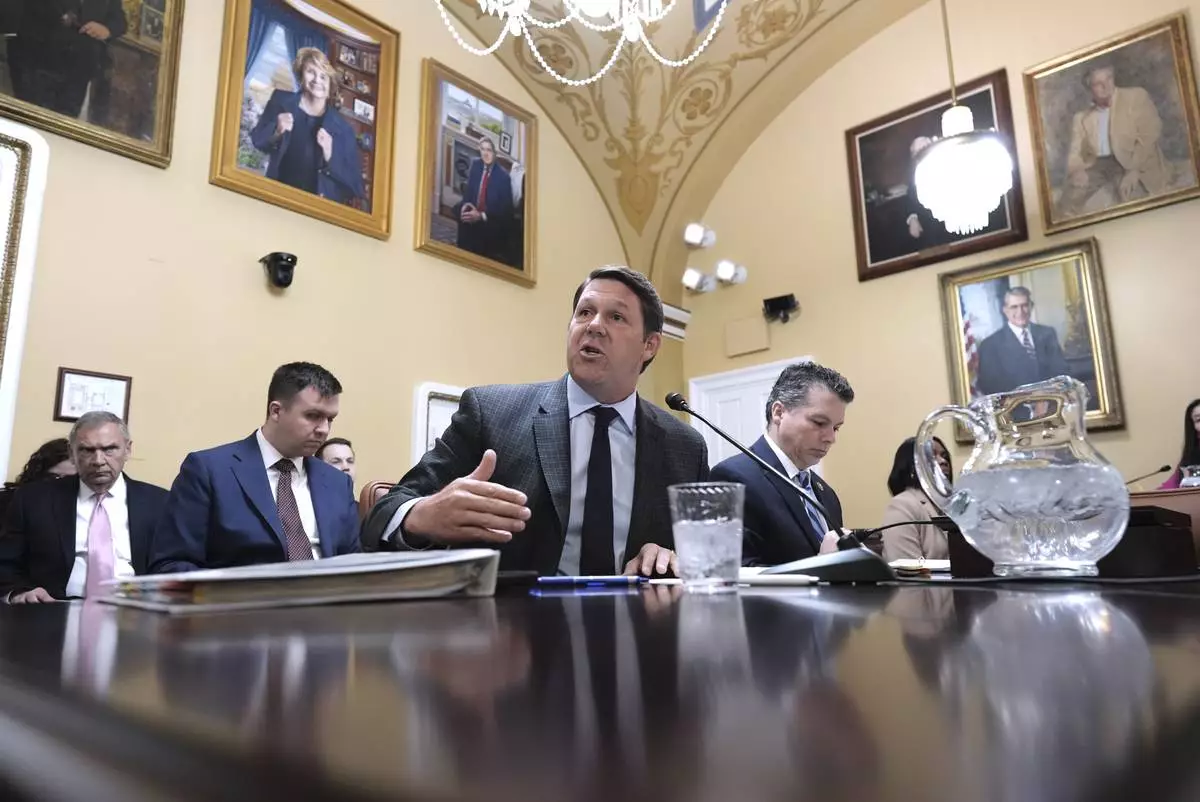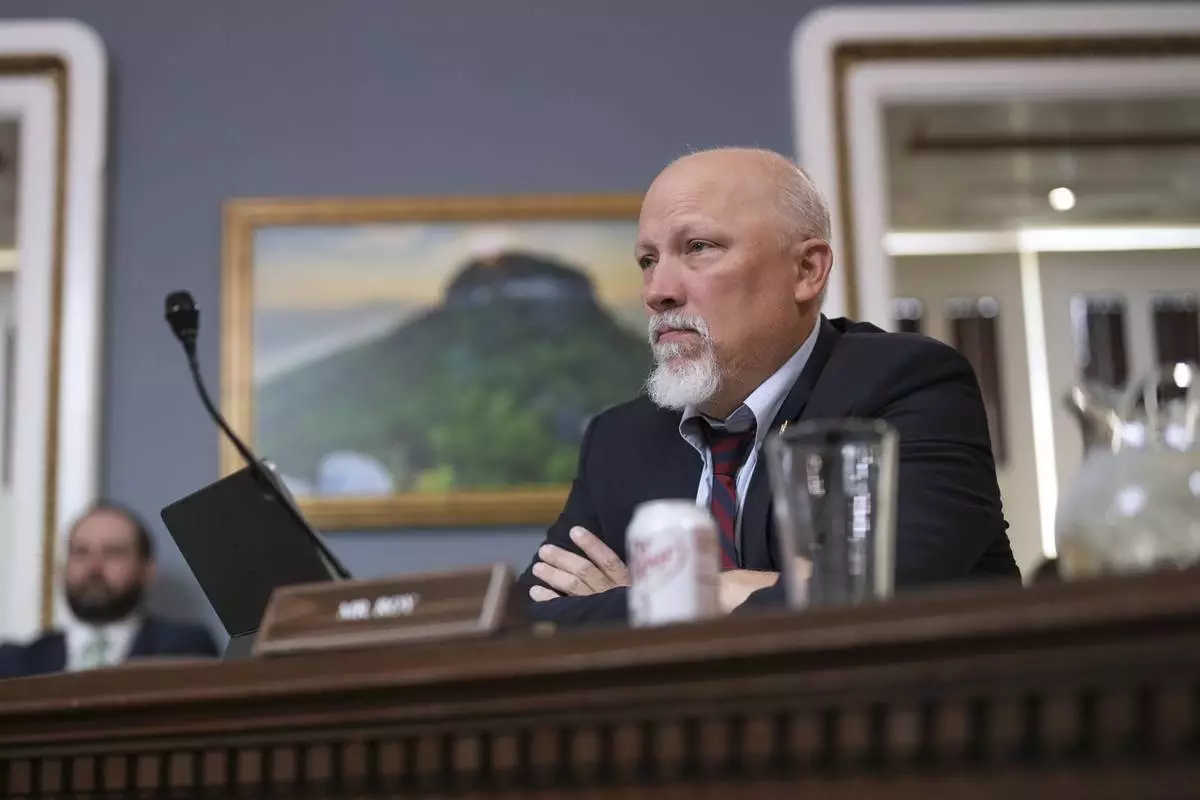MELBOURNE, Australia (AP) — Repeated concussions have taken such a toll on Will Pucovski’s promising cricket career that he’s decided he’ll never play the game again.
Pucovski was a precocious talent when he was first selected for an Australia squad in 2019 but he only played one test match — scoring a flourishing 62 on debut against India in 2021 — because of a string of concussion setbacks.
After taking medical advice to retire from first-class cricket last year following a concussion — reportedly his 13th — in a Sheffield Shield match, the 27-year-old batter confirmed in a radio interview Tuesday that he can't play again at any level because of the toll on his physical and mental health.
“The simple message is, I won’t be playing at any level again," Pucovski told the SEN network. "In the couple of months post that (last concussion) I struggled to get anything done, walking around the house was a struggle ... I was sleeping a lot. The first few months were horrendous, but things didn’t leave me.
“From there it’s been a tough year, a lot of the symptoms didn’t go away, which has led me to this decision."
Pucovski was one of the best batters in Australia but didn’t make his test debut until he faced India at Sydney in January 2021, posting a half-century in his first innings but then dislocating his right shoulder in a fielding mishap. He needed surgery and was ruled out for six months.
After returning to training in October, 2021, he sustained another concussion while batting and was ruled out of cricket for several months again. Just over a year since his last concussion, the lingering impacts have forced him out of the game.
“When you have symptoms for over a year — and I’ve had others for numerous years — it can be quite difficult to see how can I get out to play professional sport again when I’m struggling to live my life how I want to," he said. "The hard bit to come to terms with, to a degree as well, is I know what I was like before I suffered these concussions, and I know what I’m like now.
“My family have noticed a bit of a difference in me as well, and my friends, and that part is quite scary, and it’s quite scary for them as well.”
He finished his career with a first-class average of 45.19, including seven centuries and a highest score of 255 not out, as well as the record for the highest opening partnership in Australia's domestic first-class competition, the Sheffield Shield.
AP cricket: https://apnews.com/hub/cricket

FILE - Australia's Will Pucovski walks from the field after he was dismissed during play on day three of the third cricket test between India and Australia at the Sydney Cricket Ground, Sydney, Australia, Jan. 9, 2021. (AP Photo/Rick Rycroft, File)
WASHINGTON (AP) — House Republicans narrowly approved their budget framework on Thursday, a political turnaround after Speaker Mike Johnson worked into the night to satisfy GOP holdouts who had refused to advance trillions of dollars in tax breaks without deeper spending cuts.
Johnson stood with Senate Majority Leader John Thune early in the morning at the Capitol and said President Donald Trump's “big, beautiful bill,” which seeks as much as $1.5 trillion in cuts to federal programs and services, was on track. The speaker had abruptly halted voting Wednesday night.
“I believe we have the votes,” said Johnson, R-La. “We’ll take the next big step.”
Thune, R-S.D., also tried to assure House conservatives that many GOP senators are aligned with their pursuit of spending reductions.
“We certainly are going to do everything we can,” Thune said.
The 216-214 vote pushed the budget plan forward, one more milestone for Johnson, who could only lose a few detractors from his slim Republican majority. A failed vote, particularly as the economy was convulsing over Trump’s trade wars, would have been a major setback for the party's agenda in Washington.
Trump, at a black-tie fundraising dinner this week, had admonished Republicans to "stop grandstanding” on the budget.
By Thursday morning, Trump had shifted his tone, posting on social media that it's “coming along really well."
“Biggest Tax Cuts in USA History!!! Getting close,” Trump said.
The House action was a crucial next step in a lengthy process to unlock the centerpiece to the president's domestic agenda of tax cuts, mass deportations and a smaller federal government. There are weeks, if not months, ahead, on a final product, with more votes in Congress. Democrats, in the minority, lack the votes to stop the package, but they have warned against it.
But by Wednesday afternoon, the outcome was in flux. At least a dozen conservative Republicans, if not more, were firmly against the plan. Several of them, including members of the ultraconservative Freedom Caucus, made the unusual move of walking across the Capitol to meet privately with Senate GOP leaders to insist on deeper cuts.
As night fell, Johnson pulled a group of Republicans into a private meeting room as House proceedings came to a standstill. They stayed into the night hashing out alternatives, and were back at it in the morning.
Johnson said he spoke with Trump for about five minutes while the GOP meeting was taking place. The speaker said they were trying to figure out the minimal number of cuts and savings “that will satisfy everyone.”
“The president is very anxious for us to get this done,” Johnson said.
But House GOP conservatives, including several of those who met with Trump this week, were concerned that the Senate GOP's blueprint, approved last weekend, did not cut spending to the level they believe necessary to help prevent soaring deficits.
“The Math Does Not Add Up,” Rep. Chip Roy, R-Texas, posted earlier on social media.
Rep. Andy Harris, R-Md., the caucus chair, led others to met with the senators.
“All we can do is make sure that they understand where we’re coming from and how close we want to work with them to get to the final product,” Thune said afterward.
But he panned the idea of the House sending back an amended version, which would require another potential all-night voting session like the one senators endured last weekend. “We can’t do that,” Thune said.
The House and Senate are at the beginning phase of a process that will take weeks, if not months, as they turn their budget resolutions into legislative text — a final product with more votes ahead later this spring or summer.
House Democratic leader Hakeem Jeffries of New York said the budget plan is reckless and callous, proposing cuts to give tax breaks to the wealthy.
“We’re here to make it clear,” Jeffries said. “Hands off everyday Americans struggling to make ends meet.”
Central to the budget framework is the Republican effort to preserve the tax breaks approved in 2017, during Trump's first term, while potentially adding the new ones he promised during his 2024 campaign. That includes no taxes on tipped wages, Social Security income and others, ballooning the price tag to some $7 trillion over the decade.
The package also allows for budget increases with some $175 billion to pay for Trump's deportation operation and as much for the Defense Department to bolster military spending.
It would be partly paid for with deep cuts to domestic programs, including health care, as part of the $2 trillion in reductions outlined in the House version. Several Republican senators have signaled they are not willing to go that far.
To clip costs, the Senate is using an unusual accounting method that does not count the costs of preserving the 2017 tax cuts, some $4.5 trillion, as new spending, another factor that is enraging the House conservatives.
Two Republican senators voted “no” last weekend. Maine Sen. Susan Collins objected to Medicaid cuts in the House's framework, while Kentucky Sen. Rand Paul argued the whole package relied on “fishy” math that would add to the debt.
The plan would also raise the nation's debt limit to allow more borrowing to pay the bills. Trump had wanted lawmakers to take the politically difficult issue off the table. With debt now at $36 trillion, the Treasury Department has said it will run out of funds by August.
But the House and Senate need to resolve their differences on the debt limit, as well. The House GOP increases the debt limit by $4 trillion, but the Senate lifted it to $5 trillion so Congress would not have to revisit the issue again until after the midterm elections in November 2026.
With Trump's trade wars hovering over the debate, House Republicans tucked a provision into a procedural vote that would prevent House action — as the Senate has taken — to disapprove of Trump’s tariffs.
Associated Press writers Mary Clare Jalonick, Stephen Groves, Leah Askarinam and Matt Brown contributed to this report.

Rep. Chip Roy, R-Texas, right, and Rep. Scott Perry, R-Pa., members of the conservative House Freedom Caucus, meet outside of the closed-door House Republican Conference as Speaker of the House Mike Johnson, R-La., talks to fellow Republicans to push for a House-Senate compromise budget resolution to advance President Donald Trump's agenda, at the Capitol in Washington, Tuesday, April 8, 2025. (AP Photo/J. Scott Applewhite)

Rep. Jim McGovern, D-Mass., the ranking member of the House Rules Committee, challenges Budget Committee Chairman Jodey Arrington, R-Texas, as President Donald Trump's top domestic priorities on spending reductions and tax breaks are prepared for a floor vote, at the Capitol in Washington, Wednesday, April 9, 2025. (AP Photo/J. Scott Applewhite)

House Budget Committee Chairman Jodey Arrington, R-Texas, joined at right by Rep. Brendan Boyle, D-Pa., the ranking member, defends the Republican plan to advance President Donald Trump's top domestic priorities on spending reductions and tax breaks as the House Rules Committee prepares the measure for a floor vote, at the Capitol in Washington, Wednesday, April 9, 2025. (AP Photo/J. Scott Applewhite)

Speaker of the House Mike Johnson, R-La., leaves the chamber after an essential procedural vote passed in the House to advance President Donald Trump's top domestic priorities on spending reductions and tax breaks, at the Capitol in Washington, Wednesday, April 9, 2025. (AP Photo/J. Scott Applewhite)

Rep. Chip Roy, R-Texas, a member of the conservative House Freedom Caucus, listens as the Republican plan to advance President Donald Trump's top domestic priorities on spending reductions and tax breaks is prepared in the House Rules Committee for a floor vote, at the Capitol in Washington, Wednesday, April 9, 2025. The deficit hawk has blasted the GOP plan drawing the ire of both Trump and House Speaker Mike Johnson. (AP Photo/J. Scott Applewhite)

Speaker of the House Mike Johnson, R-La., talks to reporters about his push for a House-Senate compromise budget resolution to advance President Donald Trump's agenda, even with opposition from hard-line conservative Republicans, at the Capitol in Washington, Tuesday, April 8, 2025. (AP Photo/J. Scott Applewhite)



























































